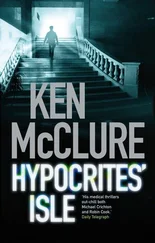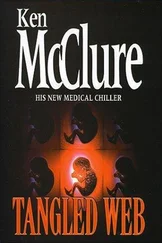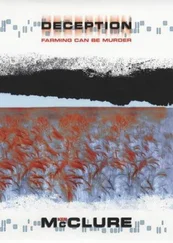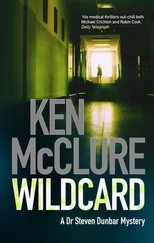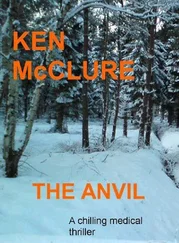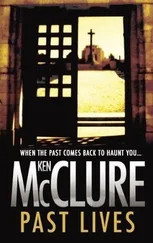Ken McClure - Pandora's Helix
Здесь есть возможность читать онлайн «Ken McClure - Pandora's Helix» весь текст электронной книги совершенно бесплатно (целиком полную версию без сокращений). В некоторых случаях можно слушать аудио, скачать через торрент в формате fb2 и присутствует краткое содержание. Год выпуска: 1997, ISBN: 1997, Издательство: Simon & Schuster, Жанр: thriller_medical, на английском языке. Описание произведения, (предисловие) а так же отзывы посетителей доступны на портале библиотеки ЛибКат.
- Название:Pandora's Helix
- Автор:
- Издательство:Simon & Schuster
- Жанр:
- Год:1997
- ISBN:978-0-684-48163-7
- Рейтинг книги:4 / 5. Голосов: 1
-
Избранное:Добавить в избранное
- Отзывы:
-
Ваша оценка:
- 80
- 1
- 2
- 3
- 4
- 5
Pandora's Helix: краткое содержание, описание и аннотация
Предлагаем к чтению аннотацию, описание, краткое содержание или предисловие (зависит от того, что написал сам автор книги «Pandora's Helix»). Если вы не нашли необходимую информацию о книге — напишите в комментариях, мы постараемся отыскать её.
Pandora's Helix — читать онлайн бесплатно полную книгу (весь текст) целиком
Ниже представлен текст книги, разбитый по страницам. Система сохранения места последней прочитанной страницы, позволяет с удобством читать онлайн бесплатно книгу «Pandora's Helix», без необходимости каждый раз заново искать на чём Вы остановились. Поставьте закладку, и сможете в любой момент перейти на страницу, на которой закончили чтение.
Интервал:
Закладка:
“Excellent,” said Heaton.
“I do have to stress that there’s not going to be much in the way of financial gain for the Trust in this but, as Tim says, it’s a high profile project. We could get lots of media attention.”
“It’s also a high risk area,” said Frank MacSween. “University College Hospital got involved in it last year with a Cystic Fibrosis trial that didn’t do terribly well as I remember.”
“But it got them a lot of attention,” said Heaton.
“And that’s the main thing,” said MacSween, under his breath. He gave Neef a furtive smile.
Two
Neef stayed behind for a few minutes with Andrew D’Arcy and Tim Heaton to discuss suitable times for a meeting with the people from Menogen Research.
“How come we’ve never heard of them?” Heaton asked D’Arcy.
“Menogen are one of the many Biotech companies set up in the early eighties when venture capital flowed in like champagne at a wedding. Genetic Engineering was the thing to sink your money into and everyone wanted to get in on the act. Unfortunately for most of them, things didn’t move as fast as the hype suggested. Many companies went to the wall when funding was withdrawn.”
“What went wrong?” asked Neef.
D’Arcy shrugged his shoulders and said, “I suppose a number of things were to blame. Investors were looking for quick profits and when that didn’t happen they started getting restless. They felt they’d been conned but that wasn’t really true. The scientists had just been over-optimistic; they kept hitting problems they hadn’t envisaged and everyone had underestimated the amount of red tape involved in moving research from the science lab into the real life environment of a hospital. This hurdle is much higher for the biotech people than the drug companies because of the moral implications involved in gene swapping. Everyone wants to have their say. Ethics committees abound.”
“But Menogen obviously survived,” said Heaton.
“They did,” said D’Arcy, “They were bright enough not to get into competition with the big boys. A big problem at the beginning was that a whole lot of companies tried to do the same thing. They all wanted to clone interferon and human insulin and there could only be one winner’s name on the patent when it was filed. Menogen opted out at the very start and concentrated on less ambitious projects. They did very nicely out of cloning blood factors and coming up with new diagnostic kits. That, not only kept them in business, but enabled them to employ some hot-shot molecular biologists to develop the business. It seems this investment has paid off. They’ve come up with several new gene delivery vectors and they are running strongly in the Gene Therapy race.”
Heaton leaned forward conspiratorially and said, “I know that Gene Therapy is the latest thing and all that but... what exactly is it?”
Neef smiled and said, “It’s a technique where a functioning gene is inserted into a patient’s cells in order to correct a deficiency in their own genes. Alternatively it can be used to introduce a new function altogether to the patient’s cells.”
“But surely that means you’ll be altering the genetic make-up of the patient?” said Heaton.
“To a very limited extent,” said Neef. “No one is trying to alter germ cells like sperm or ova. There’s no question of introducing heritable changes, just localised ones to help individual patients and believe me, that’s proving difficult enough. The whole business is still in its infancy.”
“But it’s going to be big in the future,” said D’Arcy.
“There seems little doubt about that,” agreed Neef.
“So Menogen Research would like to try out this technology on our patients,” said Heaton.
“That’s the general idea,” replied D’Arcy. “They were honest enough to admit that they’d approached University College Hospital first but had been turned down on the grounds that Uni College have their own Gene Therapy initiative run by their medical school.”
“Did you ask them about the paperwork?” asked Neef.
“It’s all in order as far as licenses and safety certificates are concerned. Of course, it will have to be passed by our own ethics and safety committee, once we find out the details of what the company have in mind.”
“Exciting,” said Heaton. “Don’t you think so, Michael?”
“Absolutely,” agreed Neef, feeling that this was the response that Heaton required.
“The cutting edge, that’s where we want to be.”
D’Arcy looked at his watch and said he had to go. Neef took the opportunity of being alone with Heaton to warn him about the imminent bad publicity he felt Eve Sayers was about to bestow on them.
Heaton shrugged philosophically. “It’s been coming. Ever since the interview with Mrs Torrance last week, I had the feeling that the paper was going to get involved. It looked too good an opportunity for them to miss. I imagine it was a toss-up between sponsoring a trip to Disneyland or lashing out on private medicine. Unfortunately for us it’s going to be the latter. Still, we’ll survive.”
Neef didn’t mention anything about losing his temper with the journalist but he reminded himself that Heaton wouldn’t have done that. He was far too smooth.
“Incidentally, Michael,” said Heaton as they left the board room and he ushered Neef out first. “I am aware that you have remained within budget for the last year and a half. I’ll make a point of bringing this point up at the next meeting of the pharmacy sub-committee.”
“I’d be grateful,” said Neef. “I feel sure the American drug is worth trying.”
“That’s good enough for me,” said Heaton. “We’ve got to do our best for our patients, even the poor little blighters in your unit. Let’s hope this thing with Menogen works out. It could be good for everyone.”
Heaton gave a last smile and walked off in his usual confident gait. Neef watched him go and permitted himself a wry smile. That was how it was done, he thought. Heaton would get him the new American drug if he played ball with Menogen.
Neef looked at his watch and saw that it was five thirty. He walked slowly back to the unit and looked in on Sister Kate Morse in the duty room of Oncology One.
“Hello stranger,” she said when Neef put his head round the door.
“It is getting a bit like that, isn’t it,” said Neef, pulling out a metal framed chair and plumping himself down wearily in front of her desk. “How are our patients? Maybe I’ll get round to seeing them soon!”
Kate Morse smiled indulgently. She was a pleasant looking woman of an age with Neef, married with two children of her own and a husband who was chief technician in the pathology lab.
“The Martin boy has had a bad day and Lisa Short has started going downhill as we feared. Lawrence called her parents this afternoon. They’re coming in. Lawrence said he’ll see them and sit with them; he’s on duty this evening.”
Neef nodded. Lawrence Fielding was his senior registrar and largely responsible for the day to day running of the unit.
“Everyone else is holding their own. Freda and Charles have shown definite signs of improvement.”
“Good. I looked in earlier with a visitor but I didn’t have time to talk.”
“I heard,” said Kate meaningfully. “A journalist.”
Neef saw the knowing look on her face. He said, “It’s brace yourself time again, I’m afraid.”
“I’ll have a word with the younger nurses,” said Kate Morse. “They always take it worst when they suddenly find out they’re part of an uncaring organisation that always puts money first and doesn’t give a hoot about the patients.” There was more than a hint of venom in her voice.
Читать дальшеИнтервал:
Закладка:
Похожие книги на «Pandora's Helix»
Представляем Вашему вниманию похожие книги на «Pandora's Helix» списком для выбора. Мы отобрали схожую по названию и смыслу литературу в надежде предоставить читателям больше вариантов отыскать новые, интересные, ещё непрочитанные произведения.
Обсуждение, отзывы о книге «Pandora's Helix» и просто собственные мнения читателей. Оставьте ваши комментарии, напишите, что Вы думаете о произведении, его смысле или главных героях. Укажите что конкретно понравилось, а что нет, и почему Вы так считаете.


